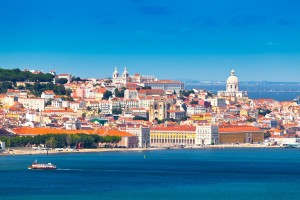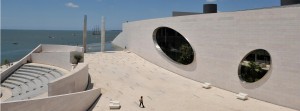Lisbon has stamina.

Celebrated for its rich and endless nightlife, distinctive neighborhoods, masterful art, and peerless custard tarts, one of Europe's oldest capital cities has not relented to bitter austerity and high unemployment.
Lisbon is, in fact, breathing new life.
Buoyed by strong investor and entrepreneurial interest, government leaders are leaning on the medical tourism industry to finesse Portugal's sluggish economy and showcase Lisbon's healthcare services. An initial upshot, the Lisbon regional tourism board anticipates, will result in five percent annual increases in hotel receipts beginning this year until 2019.
In the meantime, as Lisbon's varied tastes and senses continue to appeal to tourists worldwide, local healthcare providers and hospitality professionals in collaboration with the Medical Tourism Association are leveraging government strategies that work can toward creating health clusters and free zones, new initiatives national officials believe will make Lisbon a prime destination for medical travel.

Health Tourism Clusters
Renée-Marie Stephano, president of the Medical Tourism Association, said medical tourism has raised the level of healthcare standards globally while providing services for patients around the world. She said health tourism clusters can do for Lisbon what has been done in cities around the world where designated free zones are taxed very lightly or not at all in an effort to eliminate red tape and stimulate national economic activity.
Medical tourism is both a global and regional industry, said Stephano, following a daylong workshop on Medical Tourism Marketing and the World Health, at the Hotel Vila Gale �pera, in Lisbon. Many healthcare leaders in the private and public sectors who have long thought about the global opportunities of medical tourism are now recognizing opportunities in European markets like Lisbon.
Health Tourism Clusters
Considered the coolest city in Europe, Lisbon's prime location coupled with modern healthcare facilities makes for a practical destination for cosmetic plastic surgery, assisted reproductive technology, diagnosis and check-ups, ophthalmology and orthopedics.
Stephano said medical tourism clusters have established footing in some 80 countries worldwide, boosting local efforts to create jobs, develop medical infrastructure, educate healthcare professionals, and provide enhanced procedures and treatments to regional communities.
By addressing public/private partnerships, improving quality of care, reforming healthcare and conditions, and leveraging strategies for developing health tourism clusters, Lisbon stakeholders believe they are on their way to creating an attractive destination for medical tourism in a city that likes to look good.
But, successful public/private partnerships require significant planning, organization and strategic execution based on affordability, quality and patient perceptions of targeted destinations in order to achieve long-term goals. Lisbon isn't about to stand still at this opportunity; considering that European patients have often sidestepped heavily congested healthcare systems in their own countries to instead cross borders for surgeries in neighboring countries. To these and other potential medical travel patients, Lisbon should be known for more than bacalhau, quaint coffee houses and louche taverns.
More than Bacalhau

“It is essential to invest in Portugal, with strategic, competitive advantages that presents as a country, said Paulo Moreira, a Lisbon native and director of the International Journal of Healthcare Management. Different variables put (Lisbon) in a market position of excellence in the field of tourism health.
We have the professionals, infrastructure and equipment and innovation needed. What remains, without doubt, is a strategy that will help us to position and put Lisbon on the map as a reference country for tourism health.
One of the most notable ventures will commence shortly when work begins on a new Surgical Centre, which will include a second-floor wing dedicated exclusively for cancer patients. Measuring 3,200 square meters, the wing will include 26 VIP suites, two intensive care units and five recovery rooms, all positioned around three operating theatres.
The surgical centre, which will feature views of the Tagus River and little resemblance to conventional hospital environments, will
make us autonomous in terms of treating cancer patients and that, along with high-levels of medical care, will enable those
receiving care to benefit from surroundings that stimulate the soul, said Leonor Beleza, president of Lisbon's Champalimaud Foundation,
which is launching the project.
Foundation to Build Upon
Portugal stands out among neighbouring nations for its infrastructure, transport, technology in the delivery of healthcare, quality and competitive prices. Still, the country has little history in the international arena and stands to suffer in pursuit of potential revenue generated by regional directives that promote the movement of European patients from one border to another.
Most countries in the European Union offer universal health coverage to their citizens, meaning when one patient travels to or lives in another member country, they also are medically insured. Since passage of the EU directive on cross-border healthcare, member nation patients have the right to seek the quickest and best treatment anywhere in the EU. And that includes Lisbon, already a hotspot for nightlife, experimental cuisine, panoply of modern and classic art, fascinating streets and breathtaking beaches and castles.












